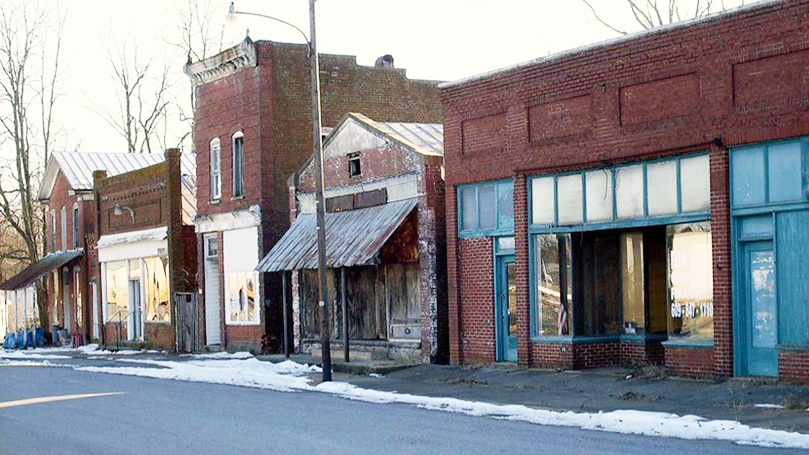
I remember the first time I’d seen real American poverty, vividly. A group of friends and I had planned a camping trip to Oregon, and after a grueling 16-hour drive, we arrived in a small town just on the border between Oregon and Northern California. It was the first time in decades that I’d seen what looked like real, unspoiled nature: forests, rivers, and plains where wild grass seemed to come up four or five feet. It was beautiful. Yet once we passed the treeline and descended into the town proper, I saw a sort of poverty that challenged even the homeless encampments of Los Angeles.
Dotting the town were abandoned buildings colored a faded clay-red, with broken plywood torn off shattered windows. Rusted grain silos squatted unused on the periphery of the town, and some shacks, made of what looked like scavenged junkyard equipment, had people living inside. One of my friends, who owned property in the area, explained we wouldn’t be staying in the town at night. As there was no real police force to speak of, hooliganism was rampant; the law was maintained by vigilantes deciding that certain crimes had been going on for too long and needed sudden violent resolution.
There are quite a few young socialists in America, such as myself, born and raised in the suburbs. Perhaps we were lucky enough to get a college education, to have access to grocery stores, electricity, and the internet. Suburbs are great for providing an illusion of national stability; no matter which way you look, you see homes, industry, and electrification. Where poverty exists in urban and suburban environments, you can roll up your car windows, keep your eyes forward, and ignore it. But in the United States’ hinterlands, you can’t miss it: there’s ramshackle buildings, crime, deprivation, and then a great desert in every direction. What we take for granted in the core of the U.S. doesn’t exist the farther you get from the major cities.
In many rural areas of the country, there is a barely functioning government; the desert between California and Nevada is particularly notorious for these communal wastelands. I believe that it’s in these towns that the Communist Party can do its most productive work and that these blind spots of the federal government would be the perfect places for experimentation with organizing, with mutual aid, and ultimately with building radically democratic institutions to introduce the ideas of socialism and communism to the United States.
How do we best help the people that have been left behind by the federal government? First, the Party can organize young, active, and devoted members into groups—I imagine five people could suffice—and task this cadre with investigating a zip code near enough to their location(s). The cadre should get a general idea of the layout, the demographics, occupations, and unique issues facing this community. Once the cadre has thoroughly investigated the community, it should approach communal institutions: churches, pubs, union halls (where they exist), and so on. The cadre should offer their services to these institutions, whether it be providing food or even their labor; they can clean up graffiti, add fresh paint to buildings, what have you.
Once the cadre has familiarized themselves with the locals and provided essential service and labor, they can then move on to more complex struggles unique to the cadre itself: perhaps they can donate books and use vacant space for a communal library, or they could offer to tutor the young people of the town in math and science, they could work on victory gardens, host movies, clean the streets, so on. Ultimately, the goal should be to establish a permanent, self-sustaining institution within the town itself. The institution could then educate the masses and introduce socialism and class consciousness to a segment of the American proletariat.
I suppose that many comrades are cynical about the ability of five people to change America. It’s worth reminding them that the history of struggle has shown that small, devoted, and disciplined groups of socialists can spark revolutionary moments. Fidel and Che had only eleven other comrades when they liberated Cuba, and the Communist Party of China went from a broken band of guerillas to the undisputed leader of China. All we have to do is win over a single town somewhere in the U.S., and the momentum of historical progress will carry us forward!
The opinions of the author do not necessarily reflect the positions of the CPUSA.
Image: David Hoffman (CC BY-NC-SA 2.0).


 Join Now
Join Now